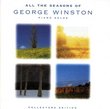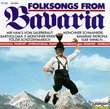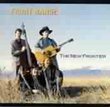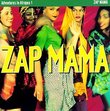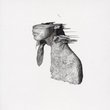| All Artists: Caroline Herring Title: Golden Apples of the Sun Members Wishing: 5 Total Copies: 0 Label: Signature Sounds Original Release Date: 1/1/2009 Re-Release Date: 11/10/2009 Genres: Country, Folk, Pop Styles: Bluegrass, Traditional Folk Number of Discs: 1 SwapaCD Credits: 1 UPC: 701237202525 |
Search - Caroline Herring :: Golden Apples of the Sun
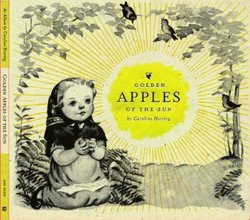 | Caroline Herring Golden Apples of the Sun Genres: Country, Folk, Pop
Caroline Herring's fourth album Golden Apples of the Sun is her most intimate and mature to date. Combing haunting originals with some surprising new takes on old standards, Herring has created an album that at once recal... more » |
Larger Image |
CD DetailsSynopsis
Album Description Caroline Herring's fourth album Golden Apples of the Sun is her most intimate and mature to date. Combing haunting originals with some surprising new takes on old standards, Herring has created an album that at once recalls the folk heyday of the 1960s and 70s while also sounding entirely fresh and new. Herring has built a name for herself by crafting in-depth story songs. Her last release, Lantana, was named by National Public Radio as one of the "Top Ten Best Folk Albums for 2008." While critics have long praised the purity and complexity of her voice, drawing comparisons to Joan Baez and Kate Wolf, the vocal performances on Golden Apples of the Sun are as comfortable and intimate as any Herring has produced. It is the most true to stage release of her career, and Herring gives credit to producer David "Goody" Goodrich, who crafted the stripped-down sound in the Signature Sounds studio in Connecticut. Armed primarily with just her guitar and live vocals, the finished product has all the marks of a fully developed artist and performer. Perhaps the most unique and unexpected aspect of the new album is the tribute Herring pays to iconic folk songstresses who influenced her. Herring's work has always been identified with the traditions of her native South, yet on Golden Apples of the Sun Herring filters the sounds and inspiration of Joni Mitchell and Judy Collins through her own distinctive musical sensibilities. Long-time Herring fans are sure to appreciate her interpretive abilities. Her inspired reinterpretations bring new life to Mitchell's "Cactus Tree" as well as the traditional bluegrass tune "Long Black Veil" and the blues classic "See See Rider." Herring also tackles "True Colors," a song made famous by Cyndi Lauper, giving a newfound strength and directness to the pop song. Similarly Requested CDs
|
CD ReviewsAn improbable triumph Jerome Clark | Canby, Minnesota | 11/21/2009 (5 out of 5 stars) "Maybe it's just me -- though I doubt it, frankly -- but the discovery that "Long Black Veil," recorded by hordes of roots artists as if in obedience to some unwritten law, has been covered yet again never fails to elicit a low, irritated growl. Anyone within listening distance could have picked up that growl as I removed Caroline Herring's "Golden Apples of the Sun" from the package in which it arrived. I could not have been more wrong. Sometimes it is good to be wrong. Written in 1959 by Danny Dill and Marijohn Wilkin, the folksong-like "Veil" was covered the same year by Lefty Frizzell, who turned it into a country hit. I was introduced to it on a Johnny Cash album a few years later. I thought it was a good story with a memorable twist, set to a nice tune. I did not anticipate that over the decades it would be beaten to death, through sheer repetition buried lower than the ballad's strung-up narrator. Miraculously, Herring resurrects the song resplendently, first by rewriting that worn-out melody, second by treating it as if it were something not from 50 years ago but from 150. There's her plaintive singing (with Ann Castro's backup vocal), and there is also the unsettling arrangement, incorporating old-time banjo and the drone of a one-stringed instrument (presumably a diddly bow) courtesy of David Goodrich, Herring's sole accompanist throughout "Golden Apples." When the song came on the player, some moments passed before I even realized what I was listening to. Small miracles abound on this marvelous recording. It arises from an unlikely, in lesser hands unpromising, premise: a modern-day folk singer's effort to pay tribute to two 1960s heroes, Judy Collins and Joni Mitchell. (In the latter 1960s it was still possible to think of Mitchell as something like a folk singer.) Herring even borrows the title of Collins's second Elektra album, released in 1962, consisting of all traditional songs but for a setting-to-music of W. B. Yeats's poem "Song of the Wandering Aengus," with its famous closing line "the silver apples of the moon, the golden apples of the sun." (Yeats took his inspiration from a legend associated with Aengus Og, the Irish god of love and beauty.) Herring offers up her own lovely, mysterious version of "Aengus," joining the esteemed company of other fine artists who have attempted the same; besides Collins, they include Karan Casey, Tommy Makem, Jean Redpath, Donovan, even -- rather incredibly -- Dave Van Ronk. Herring does one early Mitchell song, the forgotten "Cactus Tree" (from "Song to a Seagull," her 1968 debut album) which proves -- unsurprisingly, given Herring's exemplary taste as much as Mitchell's -- well worth reviving. This cover also underscores Herring's debt to Mitchell's unique vocal style as well as to her composing approach. Yet this is entirely deliberate, really the whole point of the exercise. I did not think of Mitchell when I heard Herring's previous CD, "Lantana," but I heard the same strengths: strong, graceful singing, superior songwriting, compelling interpretations of traditional and other material, and intellectual, emotional, and musical maturity. Every song is some variety of alluring. I've heard few singers who have so perfectly integrated art and folk song. And unlike Mitchell, Herring knows the tradition well -- it's part of her natural vocabulary -- but it is very much her own personalized vision of that tradition. Consider with all due awe the rolling, de-bluesified "See See Rider," with rarely heard but authentically aged lyrics. Her Mitchell-esque originals -- "A Turn Upon the Hill," "The Dozens," "The Great Unknown" -- likewise show that it only looks as if Herring were a borrower. She is, in fact, an owner of a magnificent and distinctive talent. With "Golden Apples" she is on her way." Courageous, Acoustic Gem: Powerful, Addictive revdrtomb | USA | 11/18/2009 (5 out of 5 stars) "Herring's albums always seem to arrive at the right time -- when I'm in need of moving, literate compositions that remind me of the power and possibility of acoustic music. The strength of Herring's writing comes for her extraordinary ability to straddle the line between honoring the past and forging her own unique voice -- which means her compositions have a familiarity about them while convincing you that you've never quite heard material like this before. That's true of "Golden Apples," which is more intimate than her previous releases, and which features covers of songs by Joni Mitchell and Judy Collins -- in Herring's distinctive style. (A companion EP, "Silver Apples of the Moon," includes a gorgeous take on Kate Wolf's "Here in California.") But it's Herring's original works that shine most golden here, her soothing voice and acoustic guitar a perfect match for her poetic sketches. Highly recommended." Almost famous Josiah | Toccopola, MS | 11/16/2009 (5 out of 5 stars) "There is a scene in the director's cut of Almost Famous that involves Jason Lee's character going off on those who disdain popular music because, he believes, popular music is popular because it is good.
Maybe. But I am convinced, and offer Golden Apples of the Sun as Exhibit A, that music and talent are rarely rewarded based on merit. I suppose that we will not see Golden Apples of the Sun go platinum, and Caroline chased about by hungry paparazzi. However, I am willing to bet that three hours after you listen to the album for the first time, you will still be thinking about it -- that you will listen to it, and know that you have encountered music and lyrics that, if music's ubiquity in our culture were based on real quality, you would be hearing in subway stops and truckstops everywhere. It is just that good." |

 Track Listings (12) - Disc #1
Track Listings (12) - Disc #1